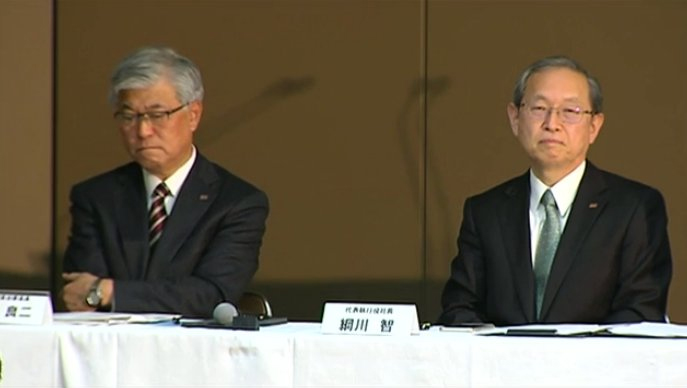Plans to build a nuclear power station near the Sellafield nuclear site in northwest England are in doubt following the announcement by Toshiba, the plant’s main backer, that it has made a provisional $3.4bn loss.
If it does go ahead, the Moorside plant will contain three Westinghouse AP1000 pressurised water reactors, giving an electricity output of 3.8GW.
Toshiba is the main shareholder in the NuGen consortium building the £10bn Moorside station, and its financial vulnerability has put its involvement in the nuclear new-build scheme in doubt.
Shigenori Shiga, the conglomerate’s chairman, is stepping down as a result of the loss, which is being blamed on its US nuclear unit, Westinghouse.
We have become increasingly reliant on the decisions of foreign companies whose interests lie with their owners and not British consumers– Rebecca Long-Bailey, shadow business secretary
The Moorside project has been seen as vital to economic future of the area, with claims that it will support 20,000 jobs and wider infrastructure improvements.
The company held a press conference in Japan to break the news of its loss today (14 February). This was marked by angry exchanges between the company’s senior executives and journalists, who demanded to know “what else the company was hiding”.
The company has asked for another month before it releases its accounts for 2016, but it has issued a preliminary report giving the level of its losses for the fiscal year to March as ¥390bn, or $3.4bn.
It is expected that the Japanese government will intervene to prevent Toshiba, and its 180,000 employees around the world, from going out of business.
However, that does not mean that all of its projects will continue, particularly those in the nuclear field, which makes up about a third of the company’s business, and which was responsible for the lion’s share of the losses.
The losses occurred in its US nuclear division following the purchase by its Westinghouse subsidiary of nuclear engineer CB&I Stone & Webster in December 2015 from the Chicago Bridge & Iron Company for $229m.

Toshiba executives at their difficult press conference earlier today (Twitter)
The issue has political ramifications in the UK. Rebecca Long-Bailey, the opposition’s shadow business secretary, told the PA news agency that the UK government’s energy policy was in chaos.
She said: “We have become increasingly reliant on the decisions of foreign companies whose interests lie with their owners and not British consumers. If Toshiba pulls out of the proposed Moorside plant, the government must intervene immediately and provide public support and financial stability for Moorside and the community of west Cumbria.”
The news comes as the UK government considers state backing for nuclear projects. The Financial Times reported earlier this week that ministers were “wrangling over how to support” new nuclear power plant projects, with some Treasury officials hostile to direct state subsidy, and the nuclear industry arguing that the plants were too important to the UK’s energy security to leave to the vagaries of the market.
Toshiba is the main shareholder in the NuGen consortium building Moorside, along with France’s Engie.
NuGen is pinning its hopes on a possible investment by Korea Electric Power Corporation (Kepco), which is owned by the South Korean government, to keep Moorside on track. It was reported last year that Kepco was in talks to buy Engie’s stake in the scheme, although it may now be able to pick up some of Toshiba’s holding as well.
The FT notes that even with Korean backing, NuGen was likely to need some form of government support to raise the billions of pounds needed for construction.
Top image: Moorside will be built beside the massive Sellafield reprocessing and decommissioning complex (Sellafield)
Further Reading:
Comments
Comments are closed.







Sad that to see this British continuation of reliance on foreign companies for its key public infrastructure like water, power and transport.